
Dr. April Phillips, DNP, FNP-c, PMHNP-BC
Contributing Author: Dr. April Phillips, DNP, FNP-c, PMHNP-BC
In celebration of National Native American Heritage Month, Frontier Nursing University (FNU) will highlight six great Native American women that you may not have heard of but should know about. Throughout history, Native American Women have served as great leaders, healers, political activists, and advocates for their people.
FNU is committed to making Diversity, Equity, and Inclusion (DEI) a priority at the university. Patients are more receptive to care from a health provider who understands their culture and socioeconomic background. We want to build a culture that is inclusive and caring for all.

Eliza Burton “Lyda” Conley graduated from the Kansas City School of Law in 1902, seventeen years before women gained the right to vote. After the sale of the Wyandot Nation’s sacred burial ground to the U.S. federal government in 1906, she launched a campaign to protect her nation’s lands that took her all the way to the Supreme Court. She then became the first female Native American to present a case before the U.S. Supreme Court.
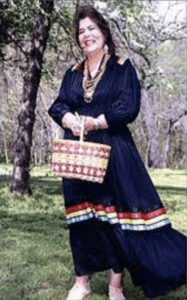
Wilma Mankiller, first female Chief of the Cherokee Nation, Activist, Writer, and Professor at Dartmouth College. She also served as an advisor to the U.S. Government on tribal affairs. In 1993, Wilma Mankiller was inducted into the National Women’s Hall of Fame. She was awarded the Presidential Medal of Freedom in 1998 by President Bill Clinton. During her tenure as chief, she was able to accomplish the following:
- Dramatic decline in infant mortality
- Tribal employment doubled
- Increased the number of tribal health clinics
- Development of several programs for Cherokee youth
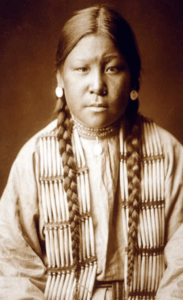
Buffalo Calf Road Woman (?-1879) was a Cheyenne woman who served as one of the greatest Native American warriors of all time. While fighting at the battle of Rosebud (1878), she rescued her brother after he had been shot. She went on to fight at the battle of Little Big Horn and was credited with knocking Lt. Col. George A. Custer off his horse.
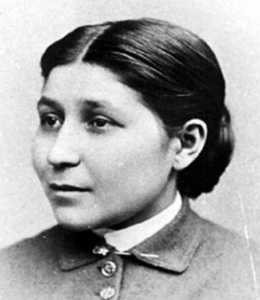
Dr. Susan La Flesche Picotte (1865-1915) was the first Native American Medical Doctor. She was a great advocate for her Omaha tribe and went on to develop campaigns to prevent alcoholism and tuberculosis on tribal lands.
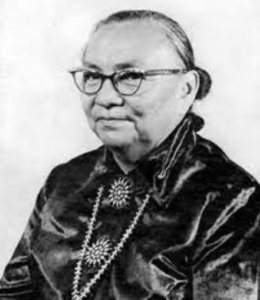
Annie Dodge Wauneka (1910-1997) was the first Native American to receive the presidential medal of freedom by President Lyndon B. Johnson. She was born Navajo reservation in Sawmill, AZ. She was the second female to be elected to the Navajo Tribal Council. She was a great nurse leader who created campaigns against influenza, poor sanitation, alcohol, and peyote use.
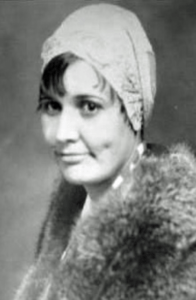
Mary Golda Ross (1908-2008) was a Cherokee woman who earned her master’s degree in astronomy and mathematics from the University of Northern Colorado. She later joined Lockheed Martin aircraft corporation in 1942. She helped to design the Lockheed P-38 Lightning fighter jet that came very close to breaking the sound barrier. She later joined Lockheed Martin Missile Systems Division (Skunk Works), a top-secret division that paved the way for space travel. She also helped to write NASA’s Planetary Flight Handbook.
We encourage you to learn more about Native American Heritage Month by visit these sites:
- https://nativeamericanheritagemonth.gov/
- https://www.ncai.org/initiatives/native-american-heritage-month
- https://www.whitehouse.gov/briefing-room/presidential-actions/2022/10/31/a-proclamation-on-national-native-american-heritage-month-2022/
You can learn more about FNU’s DEI efforts by visiting our website. You can learn about FNU’s recent land acknowledgment ceremony here. Land acknowledgments recognize Indigenous Peoples who are the original stewards of the lands we now occupy. It is a time to acknowledge the past and present, and reflect on the history of the land.
Dr. April Phillips is a board-certified psychiatric-mental health (PMHNP) and family nurse practitioner (FNP) with ten years of experience working in the realm of substance abuse treatment. She serves as the Clinical Director of the PMHNP program at Frontier Nursing University. Dr. Phillips has served in rural and underserved communities as a National Health Service Corp member and ambassador. She has also served as a representative of the New Mexico Behavioral Health Coalition (NMBHC). As a representative of the NMHBC, she worked closely with the director of Health and Human Services and former Governor Susana Martinez in New Mexico to address the dire need for increased access to behavioral health services in the state. Dr. Phillips has also served as an expert speaker before the Colorado and New Mexico state legislature on several mental health issues. Dr. Phillip’s doctoral research involved the development and implementation of a model of care designed to fully integrate mental health services into the primary care milieu. Dr. Phillips has spoken at the state, national, and international levels about the integration of mental health services into primary care.


 Vanessa Cameron works for Vanderbilt University Medical Center in Nursing Education & Professional Development. She is also attending George Washington University and progressing towards a PhD in Nursing with an emphasis on ableism in nursing. After becoming disabled in April 2021, Vanessa’s worldview and perspective changed, and a recognition of the ableism present within healthcare and within the culture of nursing was apparent. She has been working since that time to provide educational foundations for nurses about disability and ableism, provide support for fellow disabled nursing colleagues, and advocate for the disabled community within healthcare settings to reduce disparities.
Vanessa Cameron works for Vanderbilt University Medical Center in Nursing Education & Professional Development. She is also attending George Washington University and progressing towards a PhD in Nursing with an emphasis on ableism in nursing. After becoming disabled in April 2021, Vanessa’s worldview and perspective changed, and a recognition of the ableism present within healthcare and within the culture of nursing was apparent. She has been working since that time to provide educational foundations for nurses about disability and ableism, provide support for fellow disabled nursing colleagues, and advocate for the disabled community within healthcare settings to reduce disparities. Dr. Lucinda Canty is a certified nurse-midwife, Associate Professor of Nursing, and Director of the Seedworks Health Equity in Nursing Program at the University of Massachusetts Amherst. She earned a bachelor’s degree in nursing from Columbia University, a master’s degree from Yale University, specializing in nurse-midwifery, and a PhD from the University of Connecticut. Dr. Canty has provided reproductive health care for over 29 years. Her research interests include the prevention of maternal mortality and severe maternal morbidity, reducing racial and ethnic health disparities in reproductive health, promoting diversity in nursing, and eliminating racism in nursing and midwifery.
Dr. Lucinda Canty is a certified nurse-midwife, Associate Professor of Nursing, and Director of the Seedworks Health Equity in Nursing Program at the University of Massachusetts Amherst. She earned a bachelor’s degree in nursing from Columbia University, a master’s degree from Yale University, specializing in nurse-midwifery, and a PhD from the University of Connecticut. Dr. Canty has provided reproductive health care for over 29 years. Her research interests include the prevention of maternal mortality and severe maternal morbidity, reducing racial and ethnic health disparities in reproductive health, promoting diversity in nursing, and eliminating racism in nursing and midwifery. Dr. Lisa Meeks is a distinguished scholar and leader whose unwavering commitment to inclusivity and excellence has significantly influenced the landscape of health professions education and accessibility. She is the founder and executive director of the DocsWithDisabilities Initiative and holds appointments as an Associate Professor in the Departments of Learning Health Sciences and Family Medicine at the University of Michigan.
Dr. Lisa Meeks is a distinguished scholar and leader whose unwavering commitment to inclusivity and excellence has significantly influenced the landscape of health professions education and accessibility. She is the founder and executive director of the DocsWithDisabilities Initiative and holds appointments as an Associate Professor in the Departments of Learning Health Sciences and Family Medicine at the University of Michigan. Dr. Nikia Grayson, DNP, MSN, MPH, MA, CNM, FNP-C, FACNM (she/her) is a trailblazing force in reproductive justice, blending her expertise as a public health activist, anthropologist, and family nurse-midwife to champion the rights and health of underserved communities. Graduating with distinction from Howard University, Nikia holds a bachelor’s degree in communications and a master’s degree in public health. Her academic journey also led her to the University of Memphis, where she earned a master’s in medical anthropology, and the University of Tennessee, where she achieved both a master’s in nursing and a doctorate in nursing practice. Complementing her extensive education, she completed a post-master’s certificate in midwifery at Frontier Nursing University.
Dr. Nikia Grayson, DNP, MSN, MPH, MA, CNM, FNP-C, FACNM (she/her) is a trailblazing force in reproductive justice, blending her expertise as a public health activist, anthropologist, and family nurse-midwife to champion the rights and health of underserved communities. Graduating with distinction from Howard University, Nikia holds a bachelor’s degree in communications and a master’s degree in public health. Her academic journey also led her to the University of Memphis, where she earned a master’s in medical anthropology, and the University of Tennessee, where she achieved both a master’s in nursing and a doctorate in nursing practice. Complementing her extensive education, she completed a post-master’s certificate in midwifery at Frontier Nursing University.









 Dr. Tia Brown McNair is the Vice President in the Office of Diversity, Equity, and Student Success and Executive Director for the Truth, Racial Healing, and Transformation (TRHT) Campus Centers at the American Association of Colleges and Universities (AAC&U) in Washington, DC. She oversees both funded projects and AAC&U’s continuing programs on equity, inclusive excellence, high-impact practices, and student success. McNair directs AAC&U’s Summer Institutes on High-Impact Practices and Student Success, and TRHT Campus Centers and serves as the project director for several AAC&U initiatives, including the development of a TRHT-focused campus climate toolkit. She is the lead author of From Equity Talk to Equity Walk: Expanding Practitioner Knowledge for Racial Justice in Higher Education (January 2020) and Becoming a Student-Ready College: A New Culture of Leadership for Student Success (July 2016 and August 2022 Second edition).
Dr. Tia Brown McNair is the Vice President in the Office of Diversity, Equity, and Student Success and Executive Director for the Truth, Racial Healing, and Transformation (TRHT) Campus Centers at the American Association of Colleges and Universities (AAC&U) in Washington, DC. She oversees both funded projects and AAC&U’s continuing programs on equity, inclusive excellence, high-impact practices, and student success. McNair directs AAC&U’s Summer Institutes on High-Impact Practices and Student Success, and TRHT Campus Centers and serves as the project director for several AAC&U initiatives, including the development of a TRHT-focused campus climate toolkit. She is the lead author of From Equity Talk to Equity Walk: Expanding Practitioner Knowledge for Racial Justice in Higher Education (January 2020) and Becoming a Student-Ready College: A New Culture of Leadership for Student Success (July 2016 and August 2022 Second edition).